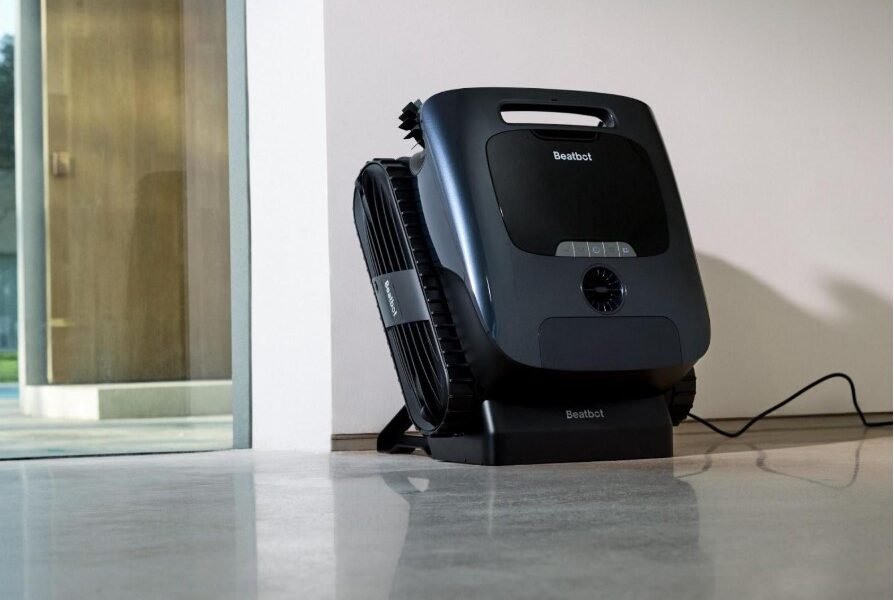Certification for Human Pool Cleaners in California
In California, cleaners who do pool maintenance work like skimming debris or running a pool vacuum generally do not need a contractor’s license if the job’s total value is less than $500, including labor and materials. The C-61/D-35 Pool and Spa Maintenance Limited Specialty Contractor license by the Contractors State License Board (CSLB) is also necessary for those who perform services over $500 or for repairs that include replacing things like a pool motor, pump, or filter. This license requires four or more years experience and a business/law exam and charges an application fee of $330 and a $200 initial license fee for 2 years. Those asking what is a pool booster pump – service of that sort of equipment also falls under this licensing requirement.
Distilled Spirits, Alcoholic Beverages and WinesRetail sales and sales to patrons for consumption at the same premises Los Angeles CountyCertification Requirements
Los Angeles County has more stringent regulations which include requiring pool cleaners to have a Certified Swimming Pool Service Technician certificate for even simple jobs like applying pool chemicals or using a skimmer. That goes for both commercial and residential pools, and in the case of training, a training course and exam, not a national certification (CPO, Certified Pool Operator). This certification helps ensure that pool chemicals and maintenance is done in such a way that processes such as how to acid wash a pool, would rarely be required. Pool owners in LA County can check certified technicians through the county’s public health department.
Do I Need a License for Robot Pool Cleaners?
While human cleaners need licenses to clean pools, robot pool cleaners such as the Maytronics pool cleaner or Beatbot’s – Beatbot AquaSense 2 Ultra, Beatbot AquaSense 2 Pro, and Beatbot AquaSense 2 – don’t need one for operations. These robotic pool cleaners are consumer products that are automatic, scrub the pool floor and climbs walls. With tasks like debris removal and algae scrubbing being their responsibility, wall climbing Pool cleaners can be operated without any kind of certification by the pool owner. If you’re wondering, “Does a pool robot remove algae? I’ve seen it for myself that new generation of pool vacuum robots with high-performance brushes and filtration capabilities like Beatbot’s AquaSense series can effectively control light to medium algae.
Advantage Of Having Robot Pool Cleaners
Robotic pool cleaners The easy solutionWhich means, there are no licensing concerns for home owners, it’s an easy swap to make. Gadgets such as the Beatbot iSkim Ultra, a solar-powered pool skimmer, remove debris from the surface 24-7, and vacuum cleaners for pools pick up underwater grime. They will cut you back on them chemicals and manuall labor, if you can find out how to drain an in ground pool without a pump. Paired with efficient, sustainable and convenient AI navigation and app-based control, it is a very popular solution for busy pool owners.
Commercial vs. Residential Pool Cleaning Needs
California commercial pool cleaners typically have even more regulations to deal with. For example, the service of public pools may require a C-53 Swimming Pool Contractors License (constructing and servicing all aspects of a pool), or a technician certification for water treatment. Such measures promote safety and prevention in busy places. The second is that residential robot pools are operated by devices in the same way as the invention is directed that allow homeowners to avoid each of these requirements for themselves. Companies that provide pool robotic pool cleaner service will also need to make sure they are certified accordingly in their county, such as Los Angeles.
Challenges and Considerations
Human pool cleaners unlicensed may face fines of up to $15-thousand, even jail-time for doing unlicensed work that exceeds $500, as enforced by CSLB stings. Challenges for robot pool cleaners include battery life constraints for cordless models or tangling and twisting of the cords in older designs. But with the new wave of swimming pool robot cleaners that Beatbot is queued up to conquer, there have been solutions to this with long-life batteries and intelligent navigation. If you are a pool owner with a substantial algae problem, you may still need a pool vacuum for algae or professional services, as some robots have problems with severe buildup. Regular maintenance of robot filters is important, according to The Spruce’s robotic pool cleaner reviews.
Why Licensing Matters
Regulating pool cleaner licenses allows consumers to trust these individuals and protect their pools, while also preventing the degradation of an industry. These rules are irrelevant if the homeowner is using an automated pool cleaner but if service is needed it is definitely worth a homeowner’s time to do some research and look up credentials through the CSLB website when hiring a professional. * Certified or licensed cleaners offer peace of mind, especially for complicated jobs that go well beyond what a robot pool cleaner can do, like major repairs or chemical balancing. Visit the Beatbot website to browse the best in robots and automated robotics that compliment top tier professional experience.
Conclusion
In California, people must hold a C-61/D-35 license to clean pools that are not their own and charge more than $500 for it, or to make pool repairs, and Los Angeles County requires that anyone who provides pool maintenance become a certified technician. But you can’t legally charge pool-side spectators cash money without a special license in most cities. Robot pool cleaners such as Beatbot’s AquaSense series can be used by homeowners without a license, making it a convenient, regulation-free option. These kinds of pool cleaning robots are excellent in doing jobs like algae removal and skim the pool’s surface to keep the pool free of debris. For the top robot pool cleaner options, see PCMag’s robotic pool cleaner guide or head to Beatbot’s product page to keep your pool looking fresh.




